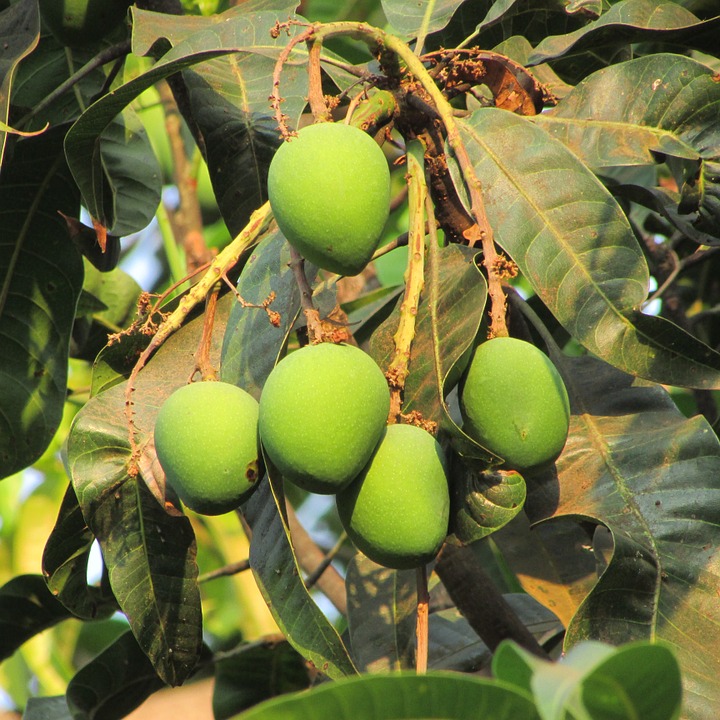This comprehensive guide delves into the question of whether cats can safely enjoy mango, exploring the nutritional composition of this tropical fruit, analyzing potential risks, and providing expert advice on how to ensure your feline friend's well-being. We'll examine the nutritional content of mangoes, analyze the potential hazards, and offer expert advice on how to safely introduce mango into your feline's diet, if at all.
Part 1: Understanding the Nutritional Content of Mango

1.1. A Detailed Look at Mango's Nutritional Profile
Mangoes, often referred to as the "king of fruits," are renowned for their vibrant flavour and nutritional value. A single cup (about 165 grams) of diced mango provides:
- Calories: 100
- Protein: 1 gram
- Fat: 0.5 grams
- Carbohydrates: 25 grams
- Dietary Fiber: 3 grams
- Vitamin A: 25% of the Recommended Daily Value (RDV)
- Vitamin C: 100% of the RDV
- Vitamin B6: 6% of the RDV
- Potassium: 15% of the RDV
- Magnesium: 4% of the RDV
1.2. Key Vitamins and Minerals in Mango
Mangoes are rich in a spectrum of vitamins and minerals crucial for human health. The most prominent include:
- Vitamin A (retinol): Crucial for healthy vision, immune function, and cell growth.
- Vitamin C (ascorbic acid): A powerful antioxidant, supporting the immune system, collagen production, and wound healing.
- Vitamin B6 (pyridoxine): Involved in the production of neurotransmitters and red blood cells, promoting brain function and energy metabolism.
- Potassium: Essential for regulating blood pressure, muscle function, and nerve impulses.
- Fibre: Promotes digestive health and regularity, preventing constipation and supporting a healthy gut microbiome.
1.3. Antioxidant Properties of Mango
Mangoes are rich in antioxidants, compounds that protect the body from damage caused by free radicals. These antioxidants include:
- Vitamin C: A powerful antioxidant that neutralizes free radicals, reducing oxidative stress.
- Beta-carotene: Converted to vitamin A in the body, also acting as an antioxidant.
- Mangiferin: A potent antioxidant found in the mango peel and flesh, exhibiting anti-inflammatory and anti-cancer properties.
Part 2: Can Cats Eat Mango? A Comprehensive Look at the Risks

2.1. The Dietary Needs of Cats: Obligate Carnivores
Cats are obligate carnivores, meaning their digestive systems are specifically designed to process meat-based proteins. Their bodies are not equipped to efficiently digest plant-based carbohydrates, like those found in mangoes.
2.2. High Sugar Content: A Major Concern
Mangoes contain a significant amount of sugar, primarily fructose. While some fruits in moderation can be part of a balanced human diet, cats lack the metabolic pathways to efficiently process fructose.
- Obesity: Excessive sugar intake can contribute to weight gain and obesity in cats, leading to various health issues.
- Dental Problems: Sugar can contribute to dental plaque and tartar buildup, increasing the risk of gum disease and tooth decay.
- Diabetes: In some cases, excessive sugar intake can trigger or worsen diabetes in predisposed cats.
2.3. High Fibre Content: Digestive Distress for Cats
The high fibre content in mangoes can cause digestive distress in cats, leading to:
- Diarrhoea: Fibre can irritate the gastrointestinal tract, leading to loose stools.
- Vomiting: The body may attempt to expel the undigested fibre, leading to vomiting.
- Gas: The breakdown of fibre by gut bacteria can produce gas, causing discomfort and bloating.
2.4. Potential Toxicity of Mango Skin and Pit
Mango skin and pits contain a compound called urushiol, which is a known allergen in humans. While the effects of urushiol on cats are not fully understood, it's best to err on the side of caution and avoid feeding any parts of the mango that contain this compound.
2.5. The Choking Hazard: A Serious Risk for Cats
The texture of mango skin and pit can pose a choking hazard for cats. Their small size and delicate anatomy make them particularly vulnerable to choking on large, hard pieces of food.
Part 3: Expert Advice: Can I Give My Cat Mango? A Definitive No

3.1. The Consensus Among Veterinarians: Mango is Not for Cats
Veterinarians and feline nutrition experts generally advise against feeding mango to cats. The risks associated with high sugar, fibre, and potential toxicity far outweigh any perceived benefits.
3.2. Safe Alternatives for Your Cat's Treats
If you're seeking healthy treats for your feline companion, there are safe and appropriate alternatives:
- Meat-based Treats: Choose commercially available treats formulated specifically for cats, containing lean meats, fish, and other suitable ingredients.
- Catnip: Catnip is a natural herb that many cats find stimulating and enjoyable, providing a safe and fun treat.
- Homemade Treats: Under veterinary guidance, you can prepare homemade treats using appropriate ingredients like chicken, fish, and vegetables.
3.3. Consulting Your Veterinarian: A Must for Dietary Choices
Your veterinarian is the best resource for determining the most appropriate diet for your cat, considering their individual needs and health status. Discuss any questions or concerns you have about your cat's diet, including potential treats.
Part 4: FAQs: Addressing Common Concerns About Mango and Cats
4.1. Can Cats Eat Cooked Mango?
No, cooking mango does not eliminate the high sugar and fibre content that poses risks to cats. It's essential to avoid giving your cat mango in any form, cooked or raw.
4.2. What if My Cat Accidentally Eats Mango?
If your cat consumes a small amount of mango, monitor them closely for any signs of digestive upset, such as diarrhoea, vomiting, lethargy, or loss of appetite. If you notice any concerning symptoms, contact your veterinarian immediately.
4.3. Are There Any Mango Varieties That Are Safer for Cats?
No, all mango varieties contain high sugar and fibre content, making them unsuitable for cats.
4.4. Can I Give My Cat Mango Juice?
Mango juice is even more concentrated in sugar and lacks the fibre content that may help with digestion. It's extremely unsafe for cats.
4.5. Can I Give My Cat Mango Peel?
No, the peel contains urushiol, a known allergen, and should be avoided.
4.6. Can I Give My Cat Mango Pit?
The mango pit is a choking hazard and also contains urushiol, making it very dangerous for cats.
4.7. Is Dried Mango Safer for Cats?
No, dried mango is even more concentrated in sugar than fresh mango and is also a choking hazard. It's important to avoid offering dried mango to your cat.
Part 5: Understanding the Importance of Responsible Pet Ownership
Responsible pet ownership involves understanding the specific dietary needs and potential risks associated with your cat's health. While mangoes might seem appealing, the high sugar and fibre content, as well as the potential for choking and allergic reactions, make them a dangerous choice. Stick to safe, cat-approved treats and consult your veterinarian for guidance on appropriate dietary choices for your feline companion.
Everyone is watching
-

Are Cat Ribs Flexible? Understanding Their Anatomy
CATS & KITTENSThis article delves into the fascinating world of feline anatomy, exploring the flexibility of cat ribs and ho...
-

Can Cats Eat Bananas? (Everything You Need to Know)
CATS & KITTENSThis article dives into the intriguing question of whether cats can safely enjoy the sweet, yellow fruit, bana...
-

Cat Lifespan: How Long Do Cats Live?
CATS & KITTENSThis comprehensive guide explores the factors influencing the lifespan of our feline companions, providing ins...
-

Can Cats Get COVID-19? What You Need to Know
CATS & KITTENSThis article will delve into the fascinating world of feline COVID-19 susceptibility. We'll explore whether ca...
-

Can Cats Eat Eggs? A Complete Guide to Egg Safety for Your Feline Friend
CATS & KITTENSWhen it comes to treating our furry companions, we all want to ensure we're doing what's best for them. Eggs...
